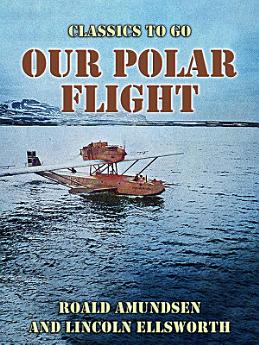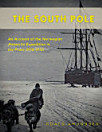Our Polar Flight
Sep 2023 · Otbebookpublishing
Ebook
244
Pages
family_home
Eligible
info
reportRatings and reviews aren’t verified Learn More
About this ebook
About the author
Roald Amundsen, born on July 16, 1872, in Borge, Norway, was a pioneering polar explorer whose daring expeditions left an indelible mark on the annals of exploration and adventure literature. Amundsen's most celebrated achievement came in 1911 when he became the first person to reach the South Pole, a feat that not only cemented his place in history but also inspired countless tales of human endurance and the relentless pursuit of discovery.Amundsen's literary contributions, though often overshadowed by his exploits, offer a gripping first-person perspective on the extreme challenges faced during his polar journeys. His writings are characterized by meticulous detail and an unflinching honesty that bring the icy landscapes and harrowing conditions vividly to life. These accounts have influenced contemporary adventure writers, who draw on his narrative style and themes of resilience and leadership.A figure of both admiration and controversy, Amundsen's competitive nature and sometimes ruthless decision-making sparked debates among his peers and successors. His rivalry with British explorer Robert Falcon Scott, who perished in his own attempt to reach the South Pole, remains a poignant chapter in the history of exploration.Amundsen was also a visionary who championed the use of new technologies, such as airplanes and airships, in polar exploration. His forward-thinking approach not only revolutionized the methods of exploration but also broadened the scope of what was deemed possible in the early 20th century.Roald Amundsen's legacy endures not only through his groundbreaking achievements but also through his compelling narratives that continue to captivate and inspire modern readers and explorers alike.
Rate this ebook
Tell us what you think.
Reading information
Smartphones and tablets
Install the Google Play Books app for Android and iPad/iPhone. It syncs automatically with your account and allows you to read online or offline wherever you are.
Laptops and computers
You can listen to audiobooks purchased on Google Play using your computer's web browser.
eReaders and other devices
To read on e-ink devices like Kobo eReaders, you'll need to download a file and transfer it to your device. Follow the detailed Help Center instructions to transfer the files to supported eReaders.








